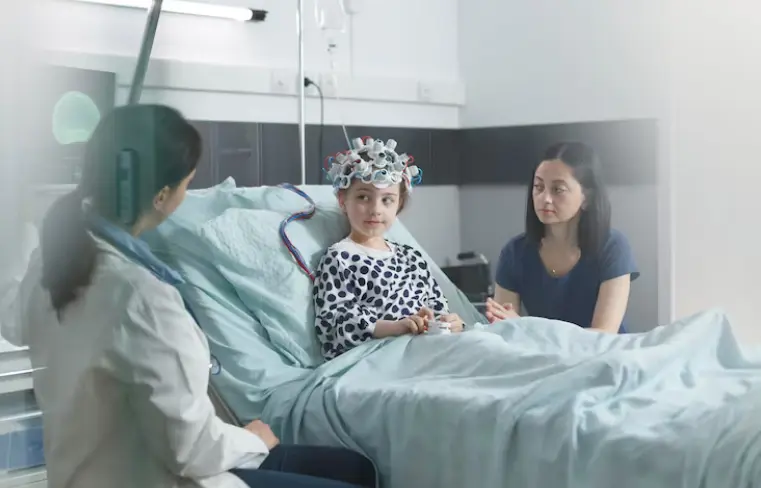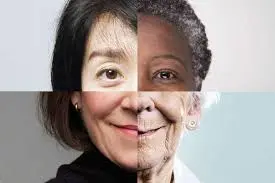Emotional Support and Care in Psycho Oncology
Providing emotional support, counseling, and holistic care for cancer patients through expert psycho oncology services.

Psycho Oncology
Psycho-oncology is an interdisciplinary field that focuses on the psychological, emotional, and social aspects of cancer care. It involves the study of how cancer affects mental health and how psychological interventions can improve the quality of life for cancer patients. Cancer is a life-altering diagnosis, and the impact it has on a patient’s emotional well-being is significant. Psycho-oncology provides support to patients and their families, helping them navigate the complex emotions that come with cancer diagnosis, treatment, and survivorship.
At VS Hospitals, the psycho-oncology services are integrated into cancer care, offering comprehensive psychological support for cancer patients, their families, and caregivers. Our goal is to ensure that patients not only receive effective medical treatment but also the emotional and psychological support needed to face the challenges of cancer.

Early Detection Saves Lives
Early detection and treatment are crucial for improving the chances of survival. If you notice any concerning symptoms, consult a healthcare provider immediately.
Signs and Symptoms
Anxiety
Worrying excessively about the diagnosis, treatment, and future can lead to heightened feelings of anxiety. Anxiety can manifest as restlessness, difficulty concentrating, and a constant sense of fear.
Depression
Feelings of sadness, hopelessness, or a lack of interest in activities that once brought joy are common among cancer patients. Depression may also result in difficulty sleeping or eating, and withdrawal from social interactions.
Stress
Cancer treatment often involves many changes and uncertainties, which can lead to high levels of stress. Patients may feel overwhelmed by medical appointments, side effects, and the financial burden of treatment.
Post-Traumatic Stress
Some patients may experience trauma-related symptoms following their diagnosis or treatment, such as nightmares, flashbacks, or emotional numbness. This may occur after a particularly difficult treatment process or hospital stay.
Guilt
Some patients feel guilty about their diagnosis, especially if they believe their lifestyle choices led to the cancer. Additionally, guilt may arise from a perceived inability to care for family members or meet personal responsibilities.
Fear of Recurrence
Many cancer patients live with a constant fear that their cancer will return after successful treatment. This can lead to increased anxiety and even avoidance of follow-up care.
Social Isolation
Patients may withdraw from friends and family due to the emotional and physical toll of cancer treatment, leading to loneliness and social isolation.
Fatigue
Mental and emotional exhaustion can be just as debilitating as physical fatigue. Cancer patients often experience fatigue as a result of both treatment and emotional strain.
Blood in Urine
Hematuria - pink, red, or dark urine, the most common symptom
Frequent Urination
Feeling the need to urinate frequently, even when bladder is not full
Painful Urination
Experiencing pain or burning sensation while urinating
Back or Pelvic Pain
Pain that occurs as the cancer grows and spreads
Unexplained Weight Loss
Significant weight loss not related to diet or exercise
Fatigue
Feeling unusually tired or weak without a clear cause
Recognizing these signs and symptoms early allows for timely intervention, helping patients manage their emotional and psychological well-being throughout their cancer journey.
Meet Our Expert Psycho Oncology Oncologists
Risk Factors
Smoking
Smoking is one of the leading causes of bladder cancer. Chemicals in tobacco smoke can damage the lining of the bladder, increasing the risk.

Gender
Men are at a higher risk of developing bladder cancer than women.

Chronic Bladder Infections or Inflammation
Conditions such as bladder infections and long-term bladder inflammation can increase the risk.

Exposure to Chemicals
Prolonged exposure to certain chemicals, especially those used in the dye industry, rubber production, and chemical manufacturing, increases the risk.

Type and Stage of Cancer
The type of cancer and how advanced it is can impact the level of psychological distress. Patients with more aggressive forms of cancer or advanced stages may experience higher levels of anxiety, depression, and fear.

Previous Mental Health History
Patients with a history of mental health conditions, such as depression, anxiety, or PTSD, may experience exacerbated symptoms during their cancer treatment.

Age
Older adults may face unique emotional challenges when diagnosed with cancer, such as concerns about mortality, the impact of illness on independence, and caregiving.

Social Support
Having a strong network of family and friends can help reduce emotional distress. Lack of social support, on the other hand, increases the risk of anxiety, depression, and isolation.

Gender
Studies have shown that women may experience higher levels of anxiety and depression during cancer treatment compared to men. However, men may also face challenges related to masculinity and vulnerability during treatment.

Cultural Factors
Cultural background can influence how patients perceive their illness and seek help. Cultural stigma around mental health can sometimes prevent patients from accessing psychological support.

Financial Stress
The cost of cancer treatment can lead to financial strain, which increases emotional distress. Concerns about insurance, treatment costs, and the ability to work during treatment can add to the mental burden.

Family History
If cancer runs in the family, patients may experience heightened anxiety about their prognosis and the potential for recurrence.

Psycho Oncology
Diet and Nutrition
Prevention
Diagnosis
Key Services
Key Facilities
Mental wellness and nutrition are strongly connected. A balanced diet can support brain function, stabilize mood, and reduce fatigue during cancer treatment. The nutrition experts at VS Hospitals collaborate closely with psycho-oncologists to promote dietary habits that enhance both mental and physical health.
- Include Omega-3 fatty acids: Found in fish, flaxseeds, and walnuts, they improve mood regulation and brain function.
- Eat colorful vegetables and fruits: Rich in antioxidants and vitamins, these help reduce stress-related inflammation.
- Stay hydrated: Proper water intake prevents fatigue and supports better concentration.
- Opt for complex carbohydrates: Whole grains, oats, and millets help stabilize blood sugar, reducing mood swings.
- Choose lean proteins: Eggs, lentils, and tofu support neurotransmitter production, improving emotional balance.
- Limit caffeine and sugar: Excess intake can cause restlessness, anxiety, and energy crashes.
- Incorporate probiotic foods: Yogurt, kefir, and fermented foods maintain gut health, which directly affects mental well-being.
- Eat smaller, frequent meals: Prevents energy dips and keeps patients feeling steady and nourished.
VS Hospitals’ dietitians provide personalized meal plans that cater to each patient’s emotional and physical recovery phase, enhancing overall wellness.
While it’s not always possible to prevent emotional distress, proactive steps can help reduce its severity and improve emotional resilience during the cancer journey.
- Open communication: Talk honestly with healthcare providers about fears and emotions.
- Build a support network: Engage with family, friends, or cancer survivor groups for shared understanding.
- Practice relaxation techniques: Yoga, meditation, and deep breathing help control anxiety and stress.
- Engage in light physical activity: Gentle exercise like walking releases endorphins, which boost mood.
- Follow a routine: Maintaining structure provides a sense of normalcy and control.
- Stay informed: Understanding the treatment process reduces fear of the unknown.
- Limit isolation: Regular social interaction improves motivation and mental energy.
- Seek professional help early: Early counseling at VS Hospitals can prevent emotional issues from escalating.
The Psycho-Oncology Department at VS Hospitals emphasizes emotional education and preventive mental health strategies for both patients and caregivers.
Diagnosing psychological distress in cancer patients requires a comprehensive assessment of their emotional and mental health. At VS Hospitals, we use a variety of methods to assess and diagnose psychological distress, including:
- Screening Questionnaires: Psycho-oncology screening tools, such as the Hospital Anxiety and Depression Scale (HADS), are used to assess symptoms of anxiety and depression in cancer patients. These simple self-report questionnaires help identify patients in need of psychological support.
- Clinical Interviews: Healthcare providers conduct in-depth interviews to understand the emotional and psychological concerns of cancer patients. These interviews allow for the identification of any underlying mental health conditions or stressors related to cancer.
- Observation: Trained oncologists, nurses, and psycho-oncologists observe the patient’s behavior, mood, and coping mechanisms throughout treatment. This helps assess the emotional impact of cancer and treatment.
- Physical Health Assessment: Because physical symptoms such as fatigue, pain, and side effects from treatment can mimic psychological distress, healthcare providers assess the patient’s overall physical condition to rule out any underlying medical causes.
- Family and Caregiver Input: Input from family members and caregivers is invaluable in identifying signs of distress that the patient may not openly express. This helps healthcare providers understand the social dynamics affecting the patient’s emotional health.
A multidisciplinary approach to diagnosis ensures that the emotional well-being of cancer patients is addressed alongside their physical health.
VS Hospitals offers a comprehensive range of psycho-oncology services designed to provide emotional and psychological support throughout a patient’s cancer journey. These services include:
- Individual Counseling: One-on-one therapy with trained psycho-oncologists helps patients address feelings of anxiety, depression, and fear. Therapeutic techniques such as cognitive-behavioral therapy (CBT) and relaxation training are used to manage emotional distress.
- Group Therapy: Group counseling sessions provide a supportive environment where patients can connect with others undergoing similar experiences. Group therapy encourages sharing coping strategies and emotional support.
- Mindfulness and Stress Reduction Programs: Mindfulness-based interventions (MBIs) are offered to help patients manage stress and reduce anxiety. These programs focus on meditation, deep breathing, and guided relaxation exercises.
- Support for Families and Caregivers: The emotional toll of cancer is felt by the entire family. At VS Hospitals, we offer counseling and support for caregivers and family members to help them cope with their own stress and support their loved ones.
- Psychosocial Assessments: Regular assessments allow psycho-oncology professionals to track the emotional well-being of patients throughout their cancer journey and adjust treatment plans as needed.
- Palliative Care: Palliative care services are available for patients with advanced cancer, focusing on symptom management and improving the quality of life. This includes pain relief, emotional support, and assistance with end-of-life planning.
- Nutritional Counseling: Psychological support extends to nutrition, as a balanced diet can play a role in mental health. Our dietitians help patients manage their nutritional needs during treatment while addressing emotional eating concerns.
- Spiritual Support: For patients seeking spiritual comfort, chaplaincy and spiritual care services are available, ensuring patients’ spiritual needs are addressed as part of their holistic care.
VS Hospitals is equipped with state-of-the-art facilities to support both the physical and emotional well-being of cancer patients. Our facilities include:
- Dedicated Psycho-Oncology Center: A specialized center that provides personalized psychological care and therapeutic support to cancer patients, ensuring they receive the emotional and mental health services they need.
- Oncology Clinics: Our oncology clinics are designed to offer comprehensive care, including psycho-oncological support. The multidisciplinary team works closely together to ensure all aspects of a patient’s health are addressed.
- Comfortable Therapy Rooms: Private and comfortable rooms for individual counseling and therapy, providing a confidential and safe environment for patients to discuss their emotional concerns.
- Group Therapy Spaces: VS Hospitals has dedicated spaces for group therapy sessions where patients can come together, share experiences, and receive support from both professionals and peers.
- Advanced Imaging and Diagnostics: Our hospitals are equipped with advanced imaging and diagnostic tools to assist in the medical management of cancer, working hand-in-hand with psycho-oncology services to provide holistic care.
- Rehabilitation and Wellness Facilities: Post-treatment rehabilitation services, including physical therapy and mindfulness programs, are available to help patients regain their strength and mental health.
- Family and Caregiver Support Areas: Dedicated spaces for families and caregivers to receive counseling, support, and information about how to care for themselves while caring for their loved ones.
Top Medical Facilities at Our Multispeciality Hospital – Here’s What Makes Us Different!
Ready to Begin Your Psycho Oncology Care Journey?
Learn More About Psycho Oncology Care
Frequently Asked Questions
Psycho-oncology is a branch of oncology that addresses the psychological, emotional, and social aspects of cancer treatment. It focuses on helping patients manage the mental health challenges associated with cancer, including anxiety, depression, and stress.
Psycho-oncology helps cancer patients by providing emotional and psychological support through counseling, stress reduction techniques, and therapeutic interventions. It helps patients manage the mental toll of cancer, improving overall well-being and quality of life during and after treatment.
Yes, psycho-oncology also provides support for family members and caregivers. Caregivers often experience emotional strain and stress, and psycho-oncology services offer counseling, coping strategies, and emotional support for them as well.
